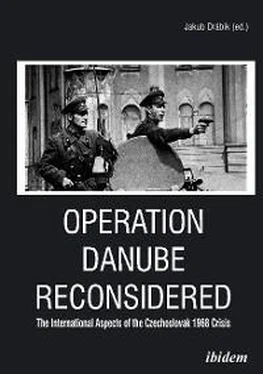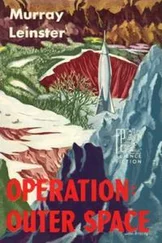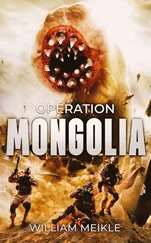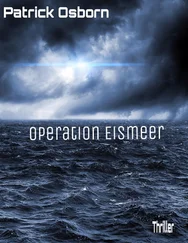When in July 1968 the Soviets started to prepare the decisive forceful action, the naturally cautious Brezhnev showed repeatedly at Politburo meetings his concern about the fact that poorly prepared intervention could only complicate the situation. Even in August, after the Bratislava summit, he exerted considerable effort (during telephone conversations) to influence Dubček in order to take control of the media, to limit the public activity of intellectuals and replace the most unacceptable for Moscow members of his team, including František Kriegel. Brezhnev’s hesitation was a factor slowing to some extent the decision-making on military intervention. Thus, on July 19 he exclaimed at the session of the Politburo: have we exhausted all the means from the arsenal of political influence; have we done everything to avoid the extreme measures? 26The delay over a military solution which might take place as early as in late July, just after the summit in Warsaw (July 14–15), was not the result of any polemics in the Soviet leadership, but primarily the internal doubts from Brezhnev himself, who by 1968 had become the first number in the country’s leadership and used the opportunity to demonstrate to his comrades his political will and weight. Prone to hesitation, he was inclined to take extreme measures only under the pressure of immutable circumstances.
Brezhnev made his final choice when it became clear to him that he had not succeeded in persuading the Czechoslovak side to reject the idea of holding the extraordinary party congress where, as it was expected, would be made decisive personnel changes.
As early as on August 21 they realized in Moscow that the plan to lead the new government to power had failed and it would be necessary to resume negotiations with the acting political team. Famously, Dubček’s team, in its desire to avoid bloodshed, went on a far-reaching compromise with Moscow. Brezhnev from his side clearly feared a lot of bloodshed, which can cause new complications. It was just his initiative to send to Prague on the eve of the intervention Kirill Mazurov: one of the members of Politburo should leave for Prague for control the whole operation, otherwise the generals would act too rudely. It is known also that during long discussions on Czechoslovak issue on August 20 Berzhnev expressed his principal view that the borders would be opened: if anticommunists and “counter-revolutionaries” would prefer to leave the country, the Soviets would welcome. Otherwise, they would have to intern too many people and would not know what to do with them—a problem that indeed never existed for Stalin. Brezhnev’s caution and indecision made it possible to prevent additional troubles that could occur due to the low level of political culture and to the political mood of the Soviet communist elite of that time.
Today, from the historical distance of 50 years we try to define the processes that took place in Czechoslovakia in 1968 and to reveal their main content. But even if we now read the attempts by Dubček and his associates to create socialism with a human face as utopian, we must nevertheless recognize that these people were motivated by sincere and noble intentions. The task of giving the existing system a more human face will never lose its relevance, even with respect to the most sophisticated political systems.
1The most important volume of studies in Russian is: 1968 год. “Пражская весна”. Историческая ретроспектива [1968. The Prague Spring. The Historical Retrospective]. Москва (М.), 2010. The book is based on the reports of the large-scale international conference held in October 2008, the studies touch the main aspects of the subject and especially the Soviet-Czechoslovak relations at the high level, the activities of the Soviet Embassy, the international context of the intervention, the reaction of the Western communist movement, the response of the Soviet public and especially of the intellectuals. The view of the official Moscow on the problem of Czechoslovak federalism and the settlement of relations between Prague and Slovakia was also reflected in the volume.
2See the collections of documents: “Пражская весна” и международный кризис 1968 года. Документы [The Prague Spring and the International Crisis of 1968 in Czechoslovakia. Documents] М., 2010; Чехословацкий кризис 1967–1969 годов в документах ЦК КПСС [The Crisis of 1967–1969 in Czechoslovakia in the documents of the Central Committee of the Soviet Union]. М., 2010. These publications are based first of all on the documents of the Russian State Archive of Contemporary History (RGANI), former Archive of the Central Committee of the Soviet Communist Party. The first of these projects was realized by RGANI and Ludwig Boltzmann-Institut für Kriegsfolgen-Forschung (Graz, Austria), headed by Stefan Karner. The other joint project was realized by RGANI in cooperation with the Czech colleagues. The volumes contain some hundreds of documents—the records of the meetings of the Soviet and Eastern-European Communist leaders where the situation in Czechoslovakia was discussed since March 1968, the interparty correspondence, the reports of the Soviet Embassy in Prague, the instructions for the internal party organizations aimed at the explanation of the Soviet policy at a lower level of the Soviet Communist Party.
3We refer here first of all to the records of the sessions of the Politburo of the Soviet Communist Party, of the Soviet-Czechoslovakian high-level talks and of the summits of the leaders of the Soviet and Eastern-European Communist Parties.
4Testimony of the well-known Russian journalist Alexander Bovin, who in the 1960s was a speechwriter for Brezhnev: Бовин А . XX век как жизнь [XX century as a life]. М., 2003. С. 175.
5На идеологическом посту: 1960-е. Воспоминания сотрудников ЦК КПСС [On the ideological post: 1960s. Memories of the functionaries of the CPSU Central Committee] // Неприкосновенный запас. Дебаты о политике и культуре. М., 2008. № 4. С. 154–158.
6See the testimony of V. Krivosheev who was the correspondent of “Izvestiya” in Prague in 1965–1968: Вторжение: Взгляд из России. Чехословакия, август 1968 [Intervention: the view from Russia. Czechoslovakia, august 1968]/Составитель Й. Паздерка. М., 2016. С. 131–138.
7Brezhnev visited Prague on December 8, 1967. See: Латыш М.В. “Пражская весна” 1968 г. и реакция Кремля [The Prague Spring of 1968 and the reaction of the Kremlin]. М., 1998. С. 17–18.
8See about the reaction of the Soviet Embassy on the election of Dubček as the first secretary of the Party: Ibid., p. 23.
9Ibid., p. 18.
10See: Шелест П.Е. Да не судимы будете: Дневниковые записи, воспоминания члена Политбюро ЦК КПСС. [Let not be judged. The Notes of Diaries, the Memories of the member of the Politbiuro CC CPSU]. М., 1995. С. 301.
1130 Октября [October 30] (издание общества “Международный Мемориал”). М., 2008. № 89. История инакомыслия. С. 7.
12On April 10, Brezhnev spoke at the plenum with the report “On the actual problems of the international situation and the CPSU’s struggle for the unity of the world communist movement”, which was not fully published in the Soviet press in order to avoid aggravating the Soviet-Chinese controversy. The report also criticized the Czechoslovak Communists for their concessions to revisionism and the weakening of the role of the ruling party.
Читать дальше












